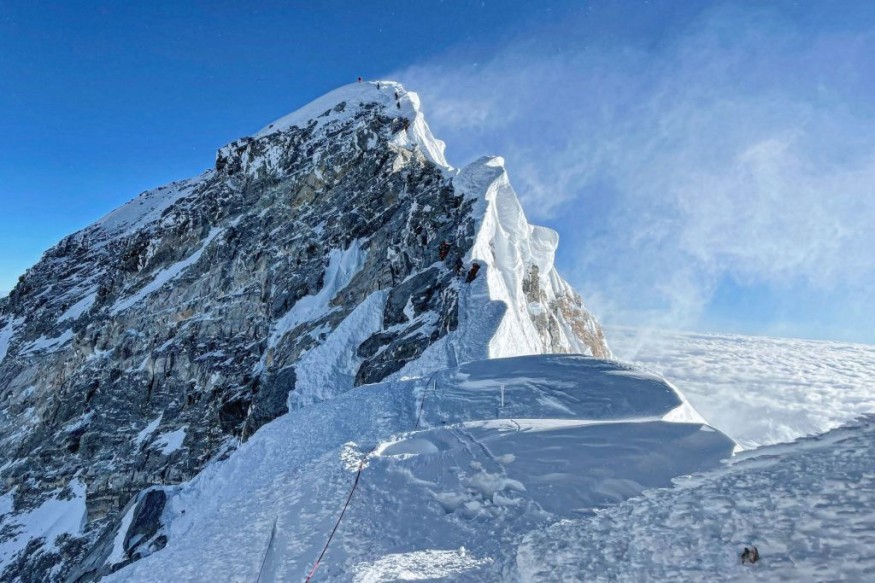
The United Nations claimed that Nepal's snow-capped mountains have lost over one-third of their ice in the last 30 years due to global warming.
Secretary-General Antonio Guterres made the pronouncement during his visit to the area surrounding Mount Everest, the world's highest mountain.
"Stop The Madness"
According to Guterres, the pace of glacier melts in Nepal, which is situated between two big carbon emitters-India and China-has increased by 65% in the last decade compared to the preceding one.
He took advantage of the visit to call for the end of the "fossil fuel age," warning that melting glaciers will result in overflowing lakes and rivers, potentially wiping out entire villages and causing sea levels to rise at unprecedented rates.
"I am here today to cry out from the rooftop of the world: stop the madness," Guterres said.
Climate experts claim that the earth's temperature has risen by 0.74 degrees Celsius on average over the last century, but warming in South Asia's Himalayas has been larger than worldwide averages.
Guterres stressed that actions should be taken now to limit the global temperature to 1.5 Celsius to lessen the effect of climate chaos, as the world cannot wait any longer.
Erasing Communities in Himalayas
Glaciers high in the Himalayas maintain major river systems, agriculture, cattle, and local economies in an area with a population of about 1.8 billion people.
However, as global temperatures rise as a result of climate change, glacial snow ice that has been squeezed over ages is melting faster than ever-not only in the Himalayas but also in critical locations like Antarctica and Greenland.
Glaciers in the Hindu-Kush Himalaya could lose up to 75% of their volume by the end of the century owing to global warming, according to a report published in June of this year. Mr. Guterres cautioned that key Himalayan rivers such as the Indus, Ganges, and Brahmaputra might see substantially lower flows in the future, decimating delta regions when combined with seawater.
"That spells catastrophe: Low-lying countries and communities erased forever," he said.
Climbers returning from Everest have stated that the mountain has become drier and grayer than before.
British climber Kenton Cool, who made his 17th ascent to the world's highest peak last Monday, described Mount Everest as "dry and rocky" and is losing snow.
The 49-year-old mountain climber, who first climbed the 8,849-metre (29,032 foot) peak in 2004, says the massive mountain appears to be drying out.
"That shows how dry the mountain is now ... I think that is because of the lack of precipitation, a lack of snowfall. It could be global warming or any environmental change of some sort," he said.
Guterres met with the community of Khumbu Pasang Lhamu Rural Municipality-4 to discuss the impact of climate change on the livelihoods of the local inhabitants.
Lakshman Adhikari, chairman of Khumbu Pasang Lhamu Rural Municipality-4, emphasized wealthier nations' responsibility for global pollution and voiced concern about the negative consequences experienced in rural locations such as Khumbu Pasang Lhamu Rural Municipality.
The UN official said the upcoming COP-28 will prioritize tackling the implications of climate change in mountainous regions, with involvement from local communities.
Related Article : Evidence Of Massive Landslide In Himalayas During Medieval Era Found
© 2025 NatureWorldNews.com All rights reserved. Do not reproduce without permission.





